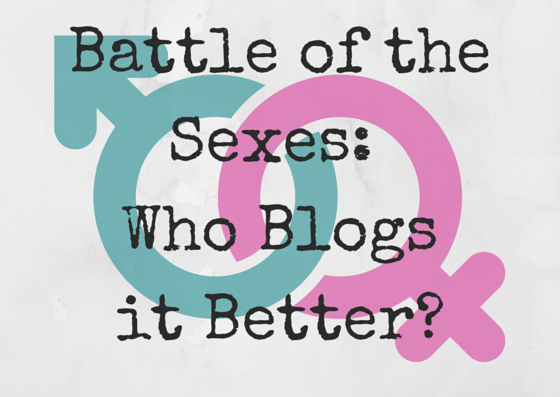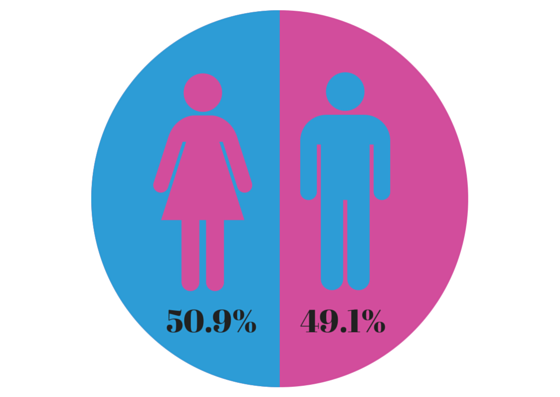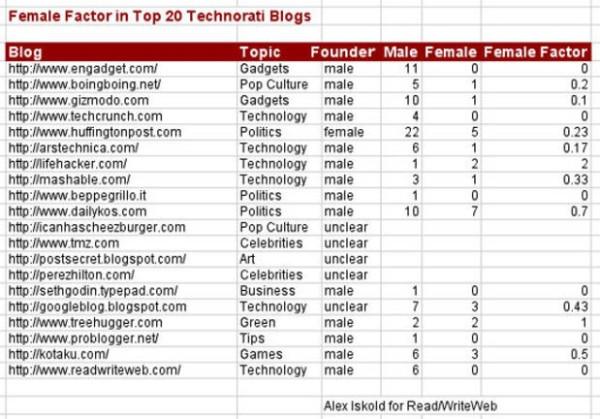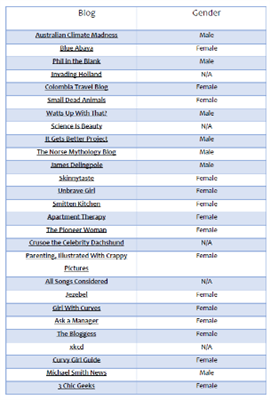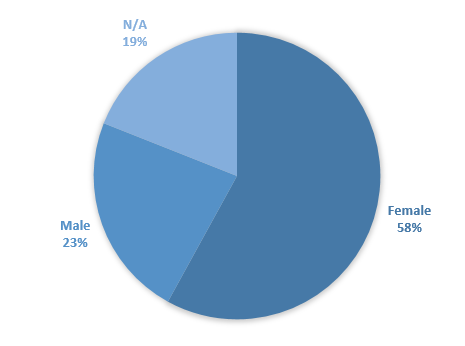Have you ever thought about whether people consider whether you’re male or female as they’re reading your blogs? Or if people can guess your gender without reading your byline?
Have you ever wondered if it actually matters?
Recently a friend of mine sent me a link to a analyzer called the “Gender Guesser”.
The idea is that you copy and paste a sample of your writing into the analyzer (about 300 words), and it guesses your gender just by your writing style!
So off I went in to my latest post on Spokal and did a quick copy and paste on the first few paragraphs there.
And my results? Male.
Hmm… Not quite.
But I know what you’re thinking: Perhaps it’s because my writing with Spokal is all about data, research and marketing. Maybe it’s the topic that’s throwing the analyzer off!
Well, I thought of that too.
And while the website clearly states that there is usually no change in results with different writing samples from the same author, I thought it best to be thorough. So I went over to my personal blog and grabbed a sample from there.
The results?
I was still deemed as “male”.
But the Gender Guesser does only claim to be 60 – 70% accurate, so it’s far from foolproof.
But the whole thing got me thinking: What exactly are the difference in writing that makes someone appear male or female? What about my writing style is male?
And, most importantly… Does it really matter?
Gender in Writing
When it comes to being a writer, the simple answer is that gender matters.
Studies have found that men are much more likely to read a book by a male author than they are by a female author. And publishers are quick to encourage new female writers to take a pseudonym if their particular genre of writing is considered “masculine”. As Penguin editor Anne Sowards told the Wall Street Journal:
“It sometimes makes sense for a female author to use a pseudonym, particularly when the main characters are male, or when it’s a genre with a strong appeal to men, like military science fiction, certain types of fantasy or gritty thrillers. When we think a book will appeal to male readers, we want everything about the book to say that-the cover, the copy and, yes, the author’s name.”
Even when it comes to reviewing books, men review nearly three times as many books by men as they do books by women.
Clearly, not all things are equal in the writing industry.
But we can’t forget that this inequality isn’t specific to the writing industry, but instead reflects the wider issue of sexism in the workplace.
Gender in the Workplace
Issues regarding gender equality are, of course, extremely important. It becomes even more important when we consider the wrokplace, an aspect of our day-to-day lives that is notoriously sexist.
When I started teaching second-level education a few years ago, the gender gap was discussed openly and it was a widely known fact that about 80% of teachers were female, while 80% of principals were male.
So even though I was working in a female dominated profession, men were in charge, which has created a phenonmenon often named the “glass ceiling”.
There’s always been a battle concerning gender in the workplace for as long as I can remember.
And the stats don’t lie:
- On average, women earn 77cents for every dollar that a man earns.
- Qualified female doctors in the U.S. make almost $17,000 less than their male counterparts.
- 24% senior management positions are held by women.
- Research has shown that male applicants for jobs are considered significantly more competent and more hireable than an (identical) female applicant.
But what about gender in blogging?
Regardless if it’s just a career or a hobby, will you be judged more harshly, reviewed less, paid less and succeed less frequently if you’re a woman?
Gender in Blogging
Just over half of all bloggers are female, and the difference between the two is negligible.
So good so far.
But just because the blogosphere is shared equally between the sexes, that doesn’t necessarily mean that both are doing the same things, or getting the same results.
Let’s take a look at the finer details.
Differences in Choice of Topic
Ah, the age old question: What do women/men actually talk about?
Research has shown that female bloggers are much more likely to prefer personal subjects, such as diary-like blogs and creative work.This is closely linked with the way women use speech to navigate conversations. As Tannen suggests in her research Men and Women in Conversation: An Analysis of Gender Styles in Language, women use language for intimacy or “rapport talk”. The purpose of talking/writing for women tends to be focused on community and connection.
On the other hand, Tannen refers to a male’s use of language as “report-talk” and based primarily around information. Male bloggers reflect this trend in their chosen blog topics it appears, as men are more likely to write opinion or information-based blogs relating to topics such as politics or interesting internet sites.
Difference in the Use of Language between Male & Female Bloggers
Numerous studies have demonstrated that men and women use language differently.
Research has shown that women tend to use more pronouns, conjunctions and auxiliary verbs. In general female bloggers tend to use social words such as “he”, “she”, “friend” and “cousin”. This seems to be because of their choice of topic of conversation which are generally more social and about human beings.
Men use more articles (a, an, the) in their language. This is due to their preferred topics also, which have a tendency to be about concrete objects that are apart from themselves. These conversations demand the use of concrete nouns, which in turn, typically demands that the speaker use articles.
In general, the research has suggested that men are “more avid consumers than women of online information,” while women are more concerned with online community and conversations.
Who’s More Technical, Men or Women?
When it comes to the technical side to gender in blogging, research has demonstrated that women are less interested / less knowledgeable regarding the technical aspects of the internet.
Male bloggers tend to produce more sophisticated blogs, with more men usuing the technically sophisticated blog hosting services such as Moveabe Type and WordPress.
Differences in Link Building Between the Genders
Male bloggers receive more inbound links than their female counterparts: An issue that has been floating around in the blogosphere for a while, because, of course: Having more links to your website makes your website more popular.
However, while more men have receive more inbound links, it’s the female bloggers who have more outbound links in their posts (about 26.25 per 1,000 words where men average 22.51 per 1,000 words).
Research suggests that female bloggers tend to link more so than male bloggers because it’s a social interaction.
Men also tend to receive more comments than women.
Other Differences Regarding Gender in Blogging
- Both male and female bloggers use 2 images per 1,000 words in their blogs about the same amount.
- Male bloggers are more likely to discard the “about me” section or give limited amount of information.
Who’s More Successful: Male or Female Bloggers?
I think I’ve established one thing quite clearly: Male and Female bloggers are different.
Now for the real question: Does it really matter?
If you’re looking at Technorati’s Top 20 blogs, you’re likely to say to think that the gender divide has spilled into the blogosphere.
As you can see, out of their top 20 blogs, only 1 is from a female blogger.
However, as we’ve discussed: Information-based topics (which tend to be the oldest / most popular blogs) are male dominated, so this isn’t really a fair representation of the blogosphere as a whole.
So I decided to come up with some of my own data.
Using the 2013 Weblog award winners, I decided to tally up how many male to female bloggers won.
The results?
15 female bloggers and 7 male bloggers (and 5 N/A).
Conclusion
Men and women have different ways of communicating, and this is evident in writing styles. With regards to gender in blogging, men seem to be information-driven, while women are socially-driven.
However, both male and female bloggers have their own individual difficulties to overcome depending on their topics of choice, style of writing and ambition.
While there are differences between the writing styles when we consider gender in blogging, I am confident when I say that the blogosphere (in general) is relatively free of sexism.
And if anything, it’s women that are taking the lead when it comes to blogging.
Please note that I have used the terms male/female (biological sex) and man/woman (socialized gender) interchangeably in this post. This is due to the resources which were used to inform the post that often don’t differentiate between the two terms.
However, in the interest of inclusivity, I would like to state that they are separate and different terms that are not always one and the same.
I also realize that much of this post is written from the POV of cisgender individuals, but for those who do not conform to these binaries, I encourage you to place yourself in whatever category that you feel most comfortable in, or to negate categorizing yourself at all and enjoy the post for its more general insights.
Thanks for reading, and be sure to share your thoughts with us!
